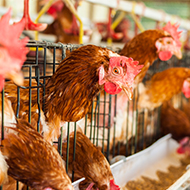Microchipping reform to speed up pet reunions
Databases will need to include a field indicating if the pet has been reported missing.
The Department of Environment, Food and Rural Affairs (Defra) has said that new reforms to the pet microchipping process will reunite thousands of lost and stolen animals.
The new microchipping system is designed to standardise database operator processes, as well as improving the accuracy of microchip information. It will also make microchip records easier to access.
As part of the measures, there will be more opportunities for users to flag potentially suspicious activity to deter pet theft.
Database operators will be required to include a field indicating whether a pet has been reported as missing. They must improve the process of transferring keepership, by giving the current keeper 28 days to object to changes.
Operators will also need to have functionality in place to prevent the duplication of records.
The new reforms will see the creation of a centralised portal which all approved users can access. This means that veterinary professionals, local authorities and the police can each search microchip records quickly, rather than contacting separate databases.
These reformations to the microchipping system are based on recommendations made by the Pet Theft Taskforce, and form part of the government’s pledge of an Action Plan for Animal Welfare.
The commitments form part of the government’s wider efforts to improve animal welfare, which has included compulsory cat microchipping from 10 June 2024.
A government consultation found that over 96 per cent of respondents supported the new reforms to the microchipping system.
Lord Douglas Miller, animal welfare minister, said: “These vital reforms will simplify the microchipping system to make it quicker for vets, local authorities and police to access important information when they need it, helping to safeguard pets from theft and increase the likelihood of lost pets being returned home.”
British Veterinary Association (BVA) president Anna Judson said: “These new measures are a positive step forwards and the new portal should help vet teams to check multiple databases quickly, identify and reunite cats and dogs with their owners and provide prompt treatment where needed.”
A spokesperson from the National Veterinary Data Service (NVDS) said: "The team at the National Veterinary Data Service welcomes the opportunity to improve pet reunification through the changes announced by Defra.
“As a database operator, we believe a flag to indicate a pet is missing and a central portal to authorise access to the information will be useful tools to help reunite owners and their pets even more efficiently."
Image © Defra



 An Avian Influenza Prevention Zone (AIPZ) has been introduced across Wales.
An Avian Influenza Prevention Zone (AIPZ) has been introduced across Wales.